Table of Contents
- Introduction
- Why do insects become a problem in monsoon?
- Natural methods to keep insects away
- Best practices for monsoon gardening
- Benefits of buying from a reliable nursery
- Conclusion
- FAQs
Introduction
Gardening in the monsoon feels fresh and joyful. But this season also brings many insects. These insects can harm your plants and slow their growth. To keep your garden safe, it’s better to use natural methods. They protect both your plants and the environment. In this blog, you’ll learn easy and eco-friendly ways to guard your garden. These tips are simple and work for everyone. Whether you are sowing seeds or buying them from the biggest nursery of Indore, these are for everyone. Moreover, they are useful for professionals as well as amateurs. Even if you are growing from an indoor outdoor plants nursery Indore, these will make your garden healthy and pest-free.
Why do insects become a problem in monsoon?
Monsoon season is all about humidity and moisture. Insects love wet soil and damp conditions. Garden pests like aphids, mosquitoes, caterpillars, and snails are very active. They will consume soft leaves of plants, stems, and even roots of plants. Your plants will be weak, sick, and unthrifty.
However, you will observe yellow leaves, holes in leaves, or stunted growth. Water standing around the pots or in the garden is a very serious issue. It is a breeding ground for mosquitoes and other insects. Unless controlled at the initial stage, such insects can breed without difficulty and destroy the entire garden. That is why it is important to take control at the right time. Natural and organic control measures are safest to use when there is rain.
Furthermore, it keeps plants healthy and safe without causing any harm to soil or environment. Prevention and proper care is the key to an insect-free monsoon park.
Natural methods to keep insects away
Generally, horticulture experts recommend selecting for natural insect control. These processes do not include dangerous chemicals. In addition, they promote healthy plants and soil. Some successful stages are as follows:
- Make Use of Neem-Based Solutions
Neem is also a suitable natural insecticide. Buy neem oil or make neem water spray at home. Spray on the plants every week. Neem kills soft-bodied pests like aphids and whiteflies. Moreover, neem stops the development of insects and egg-laying. Neem protects your plants without killing helpful bugs in.
- Plant Insect-Repelling Herbs
Certain herbs possess an inherent quality of repelling insects. It is possible to line your garden with basil, mint, and rosemary. These herbs emit strong scents that insects detest. These herbs also prove useful when placed alongside vulnerable plants to repel insects. These plants also do well in monsoon, especially if bought from a good plant nursery in Indore.
- Attract Beneficial Insects
Not all insects are pests. There are insects like ladybugs, spiders, and dragonflies that prey on dangerous insects. Invite these helpful insects by growing flowers. Don’t use chemical pesticides that destroy them. Also, you can invite them by providing tiny sources of water and shelter. Helpful insects introduce natural balance to your garden ecosystem.
- Keep Your Garden Clean
Keeping your garden neat and tidy usually prevents pest accumulation. Clear off dead leaves, dropped fruits, and weeds. They are breeding grounds for pests. Additionally, prevent water logging at the edges of beds or pots. Utilize well-draining soil and pots from a trustworthy online plant nursery in Indore to achieve higher quality. Individual good hygiene prevents breeding grounds for pests and disease.
- Apply Companion Planting
Companion planting is planting to support each other. Marigolds, for example, leave nematodes and mosquitoes behind. Garlic that is applied near tomatoes leaves the aphids behind. Therefore, fellow plant gives nutrients back into the soil and naturally reduce the pesting occur. You may ask your plant nursery in Indore for the optimum companion plants for your garden.
Best practices for monsoon gardening
Monsoon gardening also involves doing more than just warding off the insects. Some practical and easy-to-notice tips on how to care for your garden during monsoons are given below:
- Water the plants in the early morning – This avoids having excess moisture in the day. Wet leaves overnight have a high tendency to bring insects and fungus, and hence water early is best.
- Use organic compost for healthy soil – Organic manure is a natural fertilizer for soil. It promotes plant growth and increases immunity against pests and diseases.
- Remove damaged leaves and branches frequently – Break or rot off plant tissues. This promotes new growth and avoids weak points from getting attacked by pests.
- Crop rotation to avoid soil exhaustion – Rotating the positions of plants each year maintains the soil fertile. It also reduces insect and disease build-up.
- Mulch to avoid infestation by insects and erosion – Mulch stores moisture in the soil and stops weeds from growing. It also protects the roots and repels insects.
These tricks maintain your garden strong and healthy all year long
Benefits of buying from a reliable nursery
Buying garden and plant material from a good source is necessary. The biggest nursery in Indore has plants free of diseases in good health. Therefore, they also give monsoon gardening tips by experts. Choosing an indoor outdoor plants nursery in Indore offers plants based on your climate. Buying from an online plant nursery in Indore saves time and has more variety. Always choose nurseries which look after the plants and customers.
Conclusion
Monsoon weather is perfect for gardening, yet bugs are a pest. Natural control may be used in order to defend your garden and maintain it in its optimal condition. Neem sprays may repel pests. Basil leaves and mint plants, which are bug-repelling, can be used as well. Common garden cleanliness and bringing beneficial insects like ladybugs magic occurs.
However, companion planting is another clever method of guarding plants. To gain the best results, purchase healthy and strong plants from the biggest nursery in Indore or a reliable online plant nursery in Indore. These organic processes will make your garden lush and fresh on rainy days. Begin implementing these simple tips today for a joyous, healthy garden round the clock.
FAQs
Q1: How frequently should I need oil spray during the monsoon?
For optimal results, spray neem oil every 7 to 10 days.
Q2: Will companion planting eradicate the use of pesticides entirely?
Companion planting controls pests but typically needs sprays’ help.
Q3: Why indoor outdoor plants nursery in Indore?
They provide plants best suited for indoor as well as outdoor monsoon conditions.

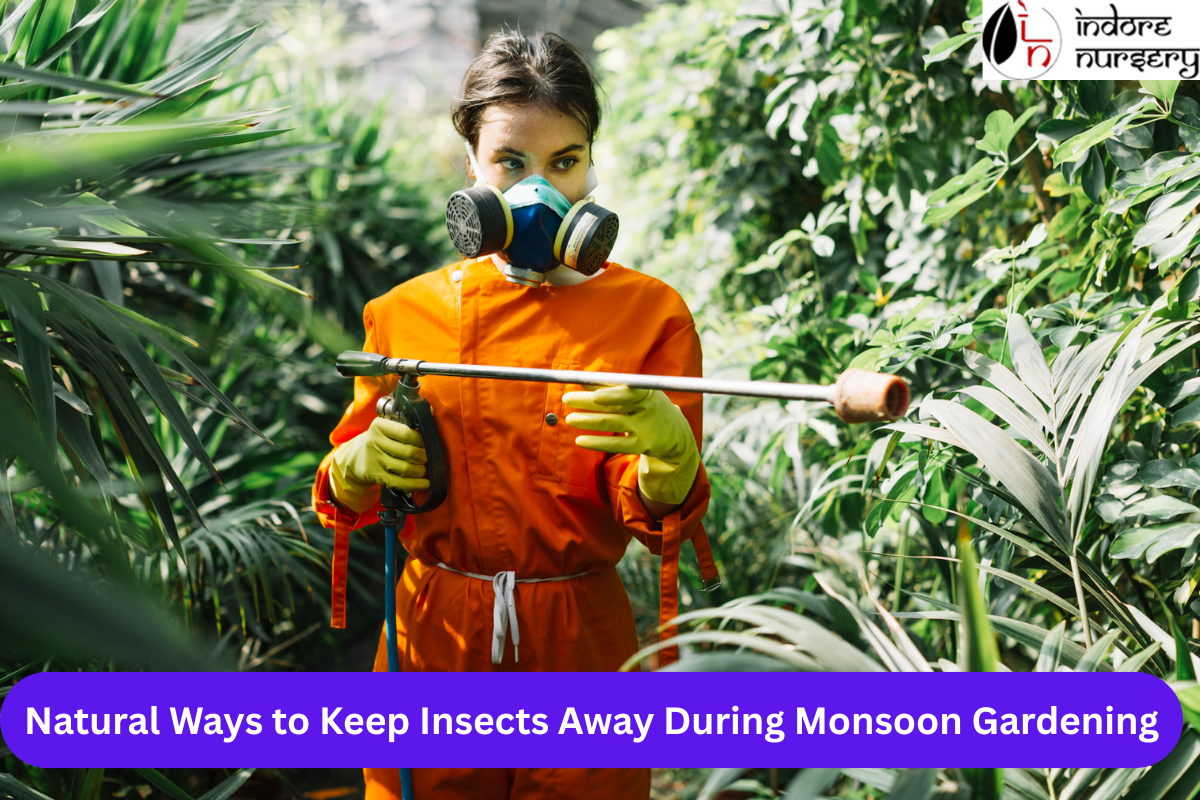
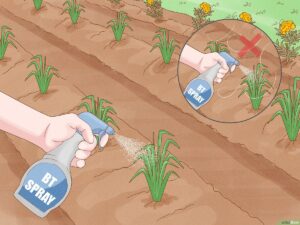




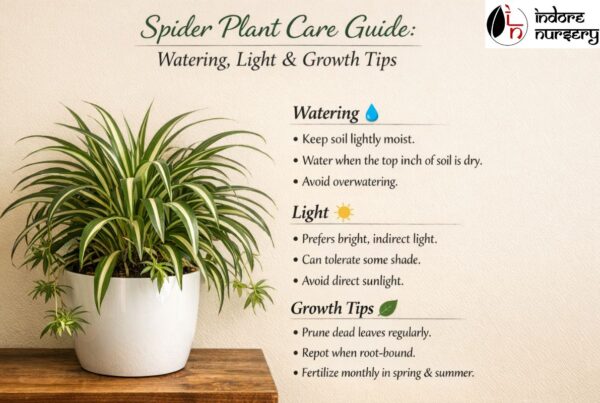
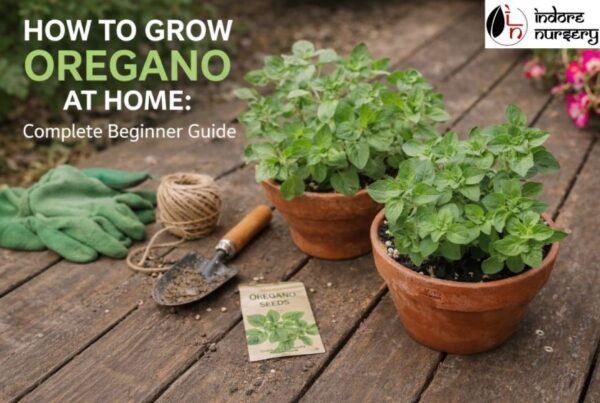

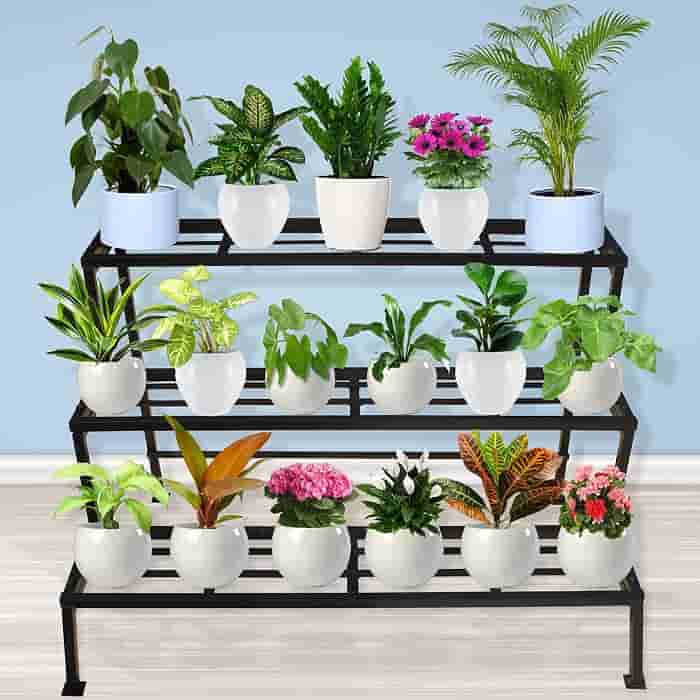
Recent Comments